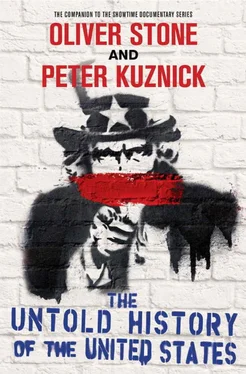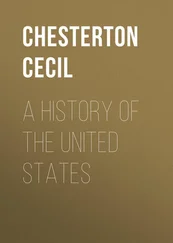After the election, Philippine atrocity stories began to circulate, replete with lurid accounts of murder, rape, and a kind of torture now called waterboarding. In November 1901, the Philadelphia Ledger ’s Manila correspondent reported:
The present war is no bloodless, fake, opera bouffé engagement. Our men have been relentless; have killed to exterminate men, women, children, prisoners and captives, active insurgents and suspected people, from lads of ten and up, an idea prevailing that the Filipino, as such, was little better than a dog… whose best disposition was the rubbish heap. Our soldiers have pumped salt water into men to “make them talk,” have taken prisoner people who held up their hands and peacefully surrendered, and an hour later, without an atom of evidence to show that they were even insurrectos, stood them on a bridge and shot them down one by one, to drop into the water below and float down as an example to those who found their bullet riddled corpses. 43


The presidential election of 1900 pitted Republican William McKinley, a proponent of American Empire and a staunch defender of the eastern establishment, against Democrat William Jennings Bryan, a midwestern populist and outspoken anti-imperialist. With McKinley’s victory, Bryan’s warnings against American Empire would, tragically, be ignored.
One soldier sent the following account to the Omaha World-Herald:
Lay them on their backs, a man standing on each hand and each foot, then put a round stick in the mouth and pour a pail of water in the mouth and nose, and if they don’t give up pour in another pail. They swell up like toads. I’ll tell you it is a terrible torture. 44
Fighting persisted for three and a half years before President Theodore Roosevelt declared the islands pacified. The United States deployed a total of 126,000 troops, 4,374 of whom did not make it back alive. 45The toll among Filipinos was much higher—perhaps 20,000 guerrillas and at least 200,000 civilians, many from cholera. 46Americans comforted themselves with the thought that they had spread civilization to a backward people, but at a hefty price—$400 million. Senator Beveridge felt it was money well spent. But Beveridge underestimated the real cost. The republic of Washington and Jefferson, which had long inspired democratic and revolutionary movements around the world, had started down the road that would soon make it the foe of meaningful change and the defender of the status quo.

U.S. troops employed the torture we now call waterboarding. One reporter wrote “our soldiers have pumped salt water into men to ‘make them talk.’”
In February 1901, while U.S. troops were, in McKinley’s words, uplifting, civilizing, and Christianizing the Filipinos, the U.S. Congress dispelled any lingering illusions regarding Cuban independence. It passed the Platt Amendment, which asserted the United States’ right to intervene in future Cuban affairs, limited the amount of debt Cuba could accumulate, restricted Cuba’s power to sign treaties, and gave the United States a naval base at Guantánamo Bay, which would secure the eastern approach to the Isthmus of Panama. The United States made clear that the army would not leave until the amendment was incorporated into the Cuban Constitution.

The bodies of dead Filipinos.
After the war, American businessmen swooped in, grabbing all the assets they could seize. United Fruit Company gobbled up 1.9 million acres of land for sugar production at 20 cents per acre. By 1901, Bethlehem Steel and other U.S. businesses may have owned over 80 percent of Cuban minerals.
In September 1901, a twenty-eight-year-old anarchist, Leon Czolgosz, shot McKinley at the Pan-American Exposition in Buffalo. One of his anarchist acquaintances reported that Czolgosz had complained about the “outrages committed by the American government in the Philippine islands.” 47Ironically, the assassination brought to office a much more committed imperialist, Teddy Roosevelt.
The new president savored the prospect of a canal through the Isthmus of Panama that would connect the Caribbean with the Pacific. But Panama was a province of Colombia, which refused to relinquish sovereignty for the $10 million the United States offered. Roosevelt took matters into his own hands and seized the canal route from those “cut-throats of Bogota.” 48The United States orchestrated a revolution, sent in warships to keep the Colombian army at bay, and quickly recognized Panama’s independence. In addition to the Canal Zone, the United States received the same right to intervene in Panamanian affairs that it had extorted from Cuba. Secretary of War Elihu Root warned that building the canal would force the United States to police the region for the foreseeable future.

Plowing on a Cuban sugar plantation.

The United Fruit Company office building in New Orleans. The Spanish-American War proved quite profitable for American businessmen. Once the war in Cuba ended, United Fruit took 1.9 million acres of Cuban land at 20 cents an acre.
The United States began policing the region long before completion of the canal in 1914. As U.S. investment in Central America grew by leaps and bounds in the late nineteenth and early twentieth centuries, United Fruit Company and other U.S. corporations insisted on stable, compliant governments that would protect their interests. Americans took over banana and coffee plantations, mines, railroads, and similar enterprises. So much land was devoted to commodity production for export that the countries became dependent on food imports to feed their citizens. The revenue at least enabled them to service their mounting debt to foreign banks.
Defending American businessmen’s growing investments required the constant involvement of the military to prop up corrupt and dictatorial governments and suppress revolutionary movements. As early as 1905, Root, who had become secretary of state, wrote candidly, “The South Americans now hate us, largely because they think we despise them and try to bully them.” 49Between 1900 and 1925, the United States repeatedly intervened militarily in Latin America. It sent troops to Honduras in 1903, 1907, 1911, 1912, 1919, 1924, and 1925; to Cuba in 1906, 1912, and 1917; to Nicaragua in 1907, 1910, and 1912; to the Dominican Republic in 1903, 1914, and 1916; to Haiti in 1914; to Panama in 1908, 1912, 1918, 1921, and 1925; to Mexico in 1914; and to Guatemala in 1920. 50The only reason it didn’t intervene more frequently was that it often stayed, occupying countries for extended periods of time: Nicaragua from 1912 to 1933, Haiti from 1914 to 1933, the Dominican Republic from 1916 to 1924, Cuba from 1917 to 1922, and Panama from 1918 to 1920.
Honduras was dominated first by the Spanish, then by the British, and then by the Americans. By 1907, its foreign debt stood at $124 million, its national income at $1.6 million. 51Between 1890 and 1910, foreign banana companies transformed the nation. First the Vaccaro brothers and then Sam “the Banana Man” Zemurray bought up vast plantations and the government officials needed to make sure things ran smoothly. They were soon joined by United Fruit Company of Boston. Beginning in 1907, political instability afforded the United States a pretext to intervene militarily and reinstall the supine government of Manuel Bonilla. U.S. bankers also replaced their British counterparts in controlling Honduran debt. With the political climate improved, United Fruit increased its holdings from 14,000 acres in 1918 to 61,000 in 1922 to 88,000 in 1924. 52In 1929, Zemurray sold out to United Fruit and became the company’s top official. The people of Honduras have remained impoverished ever since.
Читать дальше


















